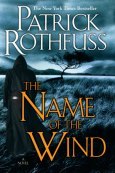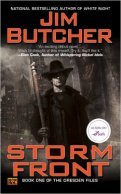Narrative: The pros and cons of 1st person narrative
I noticed Corey do a blog about The Power of POV, and that got me thinking about it. Now some people use POV (Point of View) and a few other terms. The most classic term used is narrative. Once I read his blog, I thought I’d dig a little deeper.
As I’ve learned about writing over the years, I’ve become familiar with the more commonly used types of narrative. Now most people talk about what they are, but I don’t know that anyone’s taken the time to explain what they do well and what they don’t do so well.
I experienced this writing my fifth book, The Nick of Time, which is the story of a little girl who finds herself tracking down a legendary artifact in an effort to help her father save the world before it’s scheduled to end. When I sit down to work out that story, I’m going to end up switching the narrative because the one I chose wasn’t working. It’s a solid idea, but the narrative you use to write a story changes how effective it is.
So a quick google shows varying results when you search “types of narrative in fiction.” I’m going to stick to three, because, like Corey said, those three are the ones with which most people write, and they’re also the ones with which I’m most familiar. They would be First Person, Third Person, and Third Person limited (which I call POV). As I started typing this post, I immediately realized there’s too much to cover in one blog, so this will be the first in a series of three.

First Person: Confession. This is my least favorite type of narrative, but don’t let that fool you. It’s not my least favorite because it’s just bad. Narrative is a tool. I don’t like it because I see it done badly the most. That doesn’t mean there aren’t great exampl es of first person narrative. Let’s check out a few.
es of first person narrative. Let’s check out a few.
The Kingkiller Chronicles, by Patrick Rothfuss: Rothfuss is probably the biggest name in the game right now. took the fantasy world by storm and fans will devour the next book when it comes.
 The Dresden Files, by Jim Butcher: Butcher’s Dresden Files have been a great staple in urban fantasy for almost 20 years now. It was even a series for one season, which I wish they’d go back to and work on again.
The Dresden Files, by Jim Butcher: Butcher’s Dresden Files have been a great staple in urban fantasy for almost 20 years now. It was even a series for one season, which I wish they’d go back to and work on again.
Wastelander, by Corey Truax: You’re darn right I’m talking about this story before it’s even done drafting. I’ve read it. It’s a perfect reason to use first person done by a compelling character. You won’t have to take my word for it. Just read the first chapter when the book is released; you’ll thank me later.
These are perfect examples of first person narrative done well, so let’s look at what it does for writers:
Pros:
Intensifies relationship between the main character and the reader: Readers connect to characters, and none of these narratives do so better than first person. The narrator is the main character, and he’s talking to me (the reader). It’s only natural to grow closer to someone you talk to on a regular basis. I wasn’t hooked on Dresden after book one, but I kept reading because Harry was a cool guy to listen to. When the story intensified, I was all the more invested because Harry was sharing his story with me.
 Comedy and breaking the fourth wall: First person breaks the fourth wall regardless of which effect you intend, but it’s magical when you use this for comedy. Deadpool and Ferris Bueller’s Day Off are wonderful examples of using first person narrative and breaking the fourth wall for comedic effect. This technique makes every joke an inside joke.
Comedy and breaking the fourth wall: First person breaks the fourth wall regardless of which effect you intend, but it’s magical when you use this for comedy. Deadpool and Ferris Bueller’s Day Off are wonderful examples of using first person narrative and breaking the fourth wall for comedic effect. This technique makes every joke an inside joke.
Cons:
Limited scope: I see first person narrative done most often in mysteries, and there’s a reason for that. It’s just so darn easy to keep readers in the dark when they only know what your main character knows. Beware using first person for other types of stories. It can frustrate readers to not know what’s going on. Mystery readers expect to not know; readers of other genres can get antsy when they’re kept in the dark.
Baffling perspective: There’s really no other way to describe it. During my writers’ group meeting a few weeks back, we had a huge discussion about when the main character is telling his or her story. Consider Dresden talking about horrible events after they happened. Wouldn’t that affect his ability to discuss painful memories? Isn’t it more likely that people put a positive spin on things in hind sight? I know I never told my parents exactly how stuff was broken in the house. This creates a paradox that I don’t like trying to puzzle out. Dean Koontz handled it well in Odd Thomas. I just struggle with the idea of someone writing a story after it’s happened.
meeting a few weeks back, we had a huge discussion about when the main character is telling his or her story. Consider Dresden talking about horrible events after they happened. Wouldn’t that affect his ability to discuss painful memories? Isn’t it more likely that people put a positive spin on things in hind sight? I know I never told my parents exactly how stuff was broken in the house. This creates a paradox that I don’t like trying to puzzle out. Dean Koontz handled it well in Odd Thomas. I just struggle with the idea of someone writing a story after it’s happened.
Isn’t the point of a story for the main character to progress? Won’t the person tell the story inherently be very different than the person he or she was before his or her journey started. (In case you haven’t noticed, I’m one of those jerks that refuse to use “they” as a singular personal pronoun.)
Summary: For my taste, first person narrative is most effective for stories that are limited in scope. They should have incredibly sympathetic characters. Mysteries are a bonus, but so long as the reader doesn’t need to know anything more than the main character, the story won’t suffer.
Did I miss a well told first person narrative? I know I left a lot out. I just don’t have the time an energy to post that many links to that many stories, but they’re out there. (Well, I have to at least mention the John Cleaver series by Dan Wells. Anyone who hasn’t read his stuff is missing out.)
Feel free to comment below.
Thanks for reading
Matt





